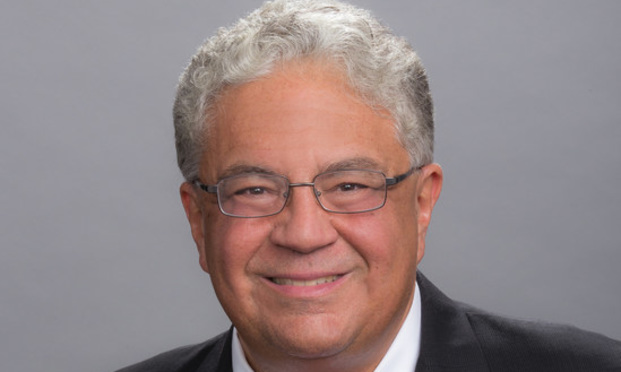Opioid Dispensing Guidelines: Pharmacists' Role in Combating Epidemic
Pennsylvania has been working on improving things as to the dispensing and the use of opioids for the treatment of pain for several years. Up until a few years ago, Pennsylvania was only one of a handful of states that did not have a functioning prescription drug monitoring program.
July 06, 2020 at 10:10 AM
6 minute read
 Vasilios "Bill" Kalogredis.
Vasilios "Bill" Kalogredis.
Pennsylvania has been working on improving things as to the dispensing and the use of opioids for the treatment of pain for several years. Up until a few years ago, Pennsylvania was only one of a handful of states that did not have a functioning prescription drug monitoring program. In August 2016, under the authority of the Achieving Better Care by Monitoring All Prescriptions Program (ABC-MAP) Act (the act), the Pennsylvania Department of Health (DOH) launched a prescription drug monitoring program (PDMP), including a statewide database (the system) for the collection of data on schedule II through schedule V controlled substances prescribed and dispensed to patients within the commonwealth. Among other purposes, the PDMP seeks to alert medical professionals to instances of patient abuse of controlled substances, including prescription opioids. Physicians and pharmacists began registering with the PDMP on Aug. 8, 2016, and the database became available for query on Aug. 25, 2016.
While today most hospitals, physician groups and other health care providers focus on the ramifications of its doctors who overprescribe narcotics, there are equally severe repercussions for pharmacists who dispense these drugs directly to patients. Pharmacists provide care to patients in various settings, from community stores, to clinics, to hospitals.
According to the Drug Enforcement Agency (DEA), pharmacists have a corresponding responsibility to that of the provider to ensure all medications are being used for a legitimate medical purpose. Opioid pain medication has tremendous benefit, but also carries high risk for several issues including but not limited to respiratory depression, constipation, hyperalgesia, diversion, abuse, addiction, arrest and death.
Under the act, all "dispensers" are required to register for the PDMP. A dispenser is defined as "a person licensed to dispense in this commonwealth, including mail order and internet sales of pharmaceuticals." However, certain persons and entities are exempt from registration, including licensed health care facilities that distribute the controlled substance for the purpose of administration in the licensed health care facility, correctional facilities if the confined person cannot lawfully visit a prescriber outside the correctional facility without being escorted by a corrections officer, hospice providers and veterinarians.
Dispensers are required to query the PDMP before dispensing an opioid drug product or a benzodiazepine prescribed to a patient if any of the following apply:
- The patient is a new patient of the dispenser.
- The patient pays cash (defined as any noninsurance payment, excluding copays) when they have insurance.
- The patient requests a refill early.
- The patient is getting opioid drug products or benzodiazepines from more than one prescriber.
A new patient does not include an individual going to the same pharmacy, or a different physical location of that pharmacy, if the patient's record is available to the dispenser. An "early refill" is defined as when the patient requests a refill prior to the date when they are eligible for insurance coverage for the prescription, or when more than 15% of an earlier-dispensed medication would remain when taken in compliance with the directions and quantity prescribed. Dispensers must query the PDMP if they have reason to believe the patient is getting opioid drug products or benzodiazepines from more than one prescriber.
A pharmacist may query the PDMP for a current patient to whom the dispenser is dispensing or considering dispensing any controlled substance, but is not required to do so.
With regard to who must report dispensation data to the PDMP and when, pharmacies and dispensing prescribers must submit all controlled substance (Schedules II–V) dispensation information to the Prescription Monitoring Program (PMP) Clearinghouse no later than the close of the subsequent business day (Monday through Friday) after dispensing a controlled substance. Pharmacists are encouraged to submit every day as well as on weekends if they are open for business. Pharmacists must submit a zero-report to notify the PDMP office that they did not dispense any controlled substances on a given business day. In certain circumstances, the DOH will grant dispensers a waiver from submitting zero-reports, for instance, if a pharmacy never dispenses controlled substances or dispenses less than five controlled substances per month.
Pharmacies and pharmacists alike are also subject to regulation by the DEA, which promulgates its own rules relative to the dispensing of opioids. For example, DEA regulations require a pharmacist to verify that a controlled substance prescription contains the patient name, address, drug name and strength, quantity prescribed, and directions for use, as well as the name, address, and DEA number of the issuing practitioner. The pharmacist must further verify that the prescription is dated as of, and signed on, the date that it is issued. The DEA has identified the following activities as "red flags" based on past DEA decisions in which pharmacies or a pharmacist's license was revoked or suspended based on the activity being "so suspicious as to support a finding that the pharmacists who filled them violated the agency's corresponding responsibility rule due to actual knowledge of, or willful blindness to, the prescriptions' illegitimacy … ":
- Patients traveling unusually far distances to fill their prescriptions;
- Nearly identical prescriptions written by the same doctor for two people with the same last name and same address;
- Filling prescriptions for drug cocktails;
- Patients paying for drugs in cash;
- Filling prescriptions for the same drug in different quantities for the same patients; and
- Early refills.
Pharmacists play an important role in the opioid epidemic and must stay vigilant to help combat it. To that end, a pharmacist may decline to fill a prescription in Pennsylvania if he suspects it may be fraudulent. Specifically, pursuant to 49 Pa. Code Section 27.18(c), "a pharmacist may decline to fill or refill a prescription [for a controlled substance or nonproprietary drug] if the pharmacist knows or has reason to know that it is false, fraudulent or unlawful, or that it is tendered by a patient served by a public or private third-party payor who will not reimburse the pharmacist for that prescription," and a pharmacist must decline to fill or refill a prescription if the pharmacist knows or has reason to know it is for use by a person other than the one for whom the prescription was written, or will be otherwise diverted, abused or misused.
—Rachel E. Lusk, an associate at Lamb McErlane who focuses on health law and health care litigation, assisted with preparing this article.
Vasilios J. Kalogredis is chairman of Lamb McErlane's health law department. He represents many medical and dental groups and thousands of individual physicians and dentists.
This content has been archived. It is available through our partners, LexisNexis® and Bloomberg Law.
To view this content, please continue to their sites.
Not a Lexis Subscriber?
Subscribe Now
Not a Bloomberg Law Subscriber?
Subscribe Now
NOT FOR REPRINT
© 2025 ALM Global, LLC, All Rights Reserved. Request academic re-use from www.copyright.com. All other uses, submit a request to [email protected]. For more information visit Asset & Logo Licensing.
You Might Like
View All
Pa. Defense Firm Sued by Client Over Ex-Eagles Player's $43.5M Med Mal Win
3 minute read
Pa. High Court: Concrete Proof Not Needed to Weigh Grounds for Preliminary Injunction Order
4 minute read
Superior Court Rejects Pa. Hospital's Challenge to $7.3M Med Mal Judgment
3 minute read
Longtime Reed Smith Health Care Partner Opts for Solo Practice Over Retirement
3 minute readLaw Firms Mentioned
Trending Stories
- 1Uber Files RICO Suit Against Plaintiff-Side Firms Alleging Fraudulent Injury Claims
- 2The Law Firm Disrupted: Scrutinizing the Elephant More Than the Mouse
- 3Inherent Diminished Value Damages Unavailable to 3rd-Party Claimants, Court Says
- 4Pa. Defense Firm Sued by Client Over Ex-Eagles Player's $43.5M Med Mal Win
- 5Losses Mount at Morris Manning, but Departing Ex-Chair Stays Bullish About His Old Firm's Future
Who Got The Work
J. Brugh Lower of Gibbons has entered an appearance for industrial equipment supplier Devco Corporation in a pending trademark infringement lawsuit. The suit, accusing the defendant of selling knock-off Graco products, was filed Dec. 18 in New Jersey District Court by Rivkin Radler on behalf of Graco Inc. and Graco Minnesota. The case, assigned to U.S. District Judge Zahid N. Quraishi, is 3:24-cv-11294, Graco Inc. et al v. Devco Corporation.
Who Got The Work
Rebecca Maller-Stein and Kent A. Yalowitz of Arnold & Porter Kaye Scholer have entered their appearances for Hanaco Venture Capital and its executives, Lior Prosor and David Frankel, in a pending securities lawsuit. The action, filed on Dec. 24 in New York Southern District Court by Zell, Aron & Co. on behalf of Goldeneye Advisors, accuses the defendants of negligently and fraudulently managing the plaintiff's $1 million investment. The case, assigned to U.S. District Judge Vernon S. Broderick, is 1:24-cv-09918, Goldeneye Advisors, LLC v. Hanaco Venture Capital, Ltd. et al.
Who Got The Work
Attorneys from A&O Shearman has stepped in as defense counsel for Toronto-Dominion Bank and other defendants in a pending securities class action. The suit, filed Dec. 11 in New York Southern District Court by Bleichmar Fonti & Auld, accuses the defendants of concealing the bank's 'pervasive' deficiencies in regards to its compliance with the Bank Secrecy Act and the quality of its anti-money laundering controls. The case, assigned to U.S. District Judge Arun Subramanian, is 1:24-cv-09445, Gonzalez v. The Toronto-Dominion Bank et al.
Who Got The Work
Crown Castle International, a Pennsylvania company providing shared communications infrastructure, has turned to Luke D. Wolf of Gordon Rees Scully Mansukhani to fend off a pending breach-of-contract lawsuit. The court action, filed Nov. 25 in Michigan Eastern District Court by Hooper Hathaway PC on behalf of The Town Residences LLC, accuses Crown Castle of failing to transfer approximately $30,000 in utility payments from T-Mobile in breach of a roof-top lease and assignment agreement. The case, assigned to U.S. District Judge Susan K. Declercq, is 2:24-cv-13131, The Town Residences LLC v. T-Mobile US, Inc. et al.
Who Got The Work
Wilfred P. Coronato and Daniel M. Schwartz of McCarter & English have stepped in as defense counsel to Electrolux Home Products Inc. in a pending product liability lawsuit. The court action, filed Nov. 26 in New York Eastern District Court by Poulos Lopiccolo PC and Nagel Rice LLP on behalf of David Stern, alleges that the defendant's refrigerators’ drawers and shelving repeatedly break and fall apart within months after purchase. The case, assigned to U.S. District Judge Joan M. Azrack, is 2:24-cv-08204, Stern v. Electrolux Home Products, Inc.
Featured Firms
Law Offices of Gary Martin Hays & Associates, P.C.
(470) 294-1674
Law Offices of Mark E. Salomone
(857) 444-6468
Smith & Hassler
(713) 739-1250





